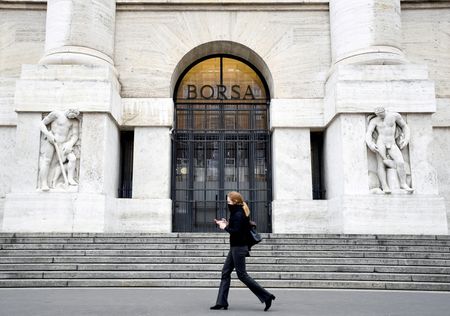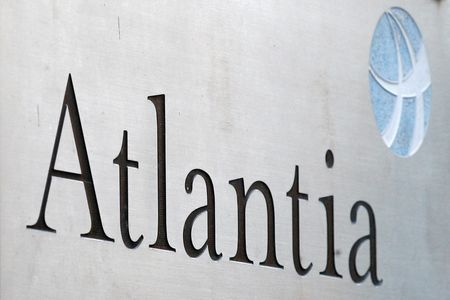By Elisa Anzolin
MILAN (Reuters) – The buyout of Atlantia will cut another 19 billion euros ($19.5 billion) from the value of the Milan bourse and bring to 12 the number of companies to leave the stock exchange this year, fuelling fears about its standing.
Legislators and regulators want to reverse the trend and reinforce the role of the 200-year-old Borsa Italiana at the heart of Italian business.
Barbara Lunghi, head of equity listings Italy at market owner Euronext, argues the scrutiny of being a listed business and having external investors pushes businesses to innovate and develop.
“It gives companies that extra gear that helps to drive growth,” Lunghi said.
But the problem has deep roots, with many of Italy’s family-run businesses unwilling to relinquish control by listing their businesses unless they need cash for M&A or other expansion strategies.
Market watchdog Consob approved measures this year to simplify procedures for the approval of IPO prospectuses, including allowing them to be submitted in English.
Also aiming to accelerate change, Italy this year started to study how to overhaul its listing, voting and other rules to address the issues holding back the country’s capital markets – though this process was frozen by a change in government after a right-wing coalition won elections at the end of September.
MILAN EXODUS
So far this year 11 companies have abandoned Euronext Milan, including the Agnelli family’s holding company Exor, which moved to the Amsterdam bourse in line with where it is legally registered.
Road and airport operator Atlantia is leaving after a buyout by the Benetton family and Blackstone passed the 90% support threshold on Thursday.
Travel caterer Autogrill is expected to be delisted after a merger with Switzerland’s Dufry, and the fate of shoemaker Tod’s remains uncertain after the failure of a buyout offer by its main shareholder.
CNH Industrial, whose shares are listed both in Milan and New York, is also evaluating the possibility of putting an end to its dual listing and focusing on the NYSE.
Taking listed companies private is a broader trend shared by many European stock exchanges, as low prices and availability of cheap money made it convenient.
Milan market cap vs Paris and London – https://fingfx.thomsonreuters.com/gfx/mkt/lgvdkwalqpo/Milan%20stock%20market%20size.PNG
FEW NEWCOMERS
On the plus side, four companies joined the main Euronext Milan market this year, including truckmaker Iveco, which was the result of a spin off. Two other companies upgraded from the smaller Euronext Growth Milan.
The situation is healthier for Euronext Growth Milan itself, a market dedicated to small and medium-sized enterprises with minimum access requirements. In 2022 it counted 18 new listings, but the overall market cap is very low.
A dearth of Italian IPOs is a perennial issue.
Over the past 20 years, the main market has lost 268 listed companies and gained only 185, according to Intermonte research published in March. In contrast, the less regulated SME market has attracted 263 listed companies and seen 68 delistings.
CULTURAL ISSUE
The fact that there are relatively few listed companies has its roots in the country’s history, said Andrea Beltratti, professor of Political Economy at Milan’s Bocconi University.
Beltratti said Italy lacks a long tradition of equity finance and its economy has been relatively weak for the last 20 years.
The heavy presence of banks and other financial intermediaries in Italy has supplanted the role of the markets, so companies often preferred to ask them for funding.
“The benefits of being listed are the ease of collecting capital and reputational (position), but there are also costs, associated with regulation, the need for transparency, and the many interactions with investors”, Beltratti said.
“I don’t think these are issues that can be solved in months or even years because it is a cultural issue,” Beltratti added.($1 = 0.9755 euros)
(Reporting by Elisa Anzolin; Graphic by Danilo Masoni; Editing by Keith Weir and David Holmes)


